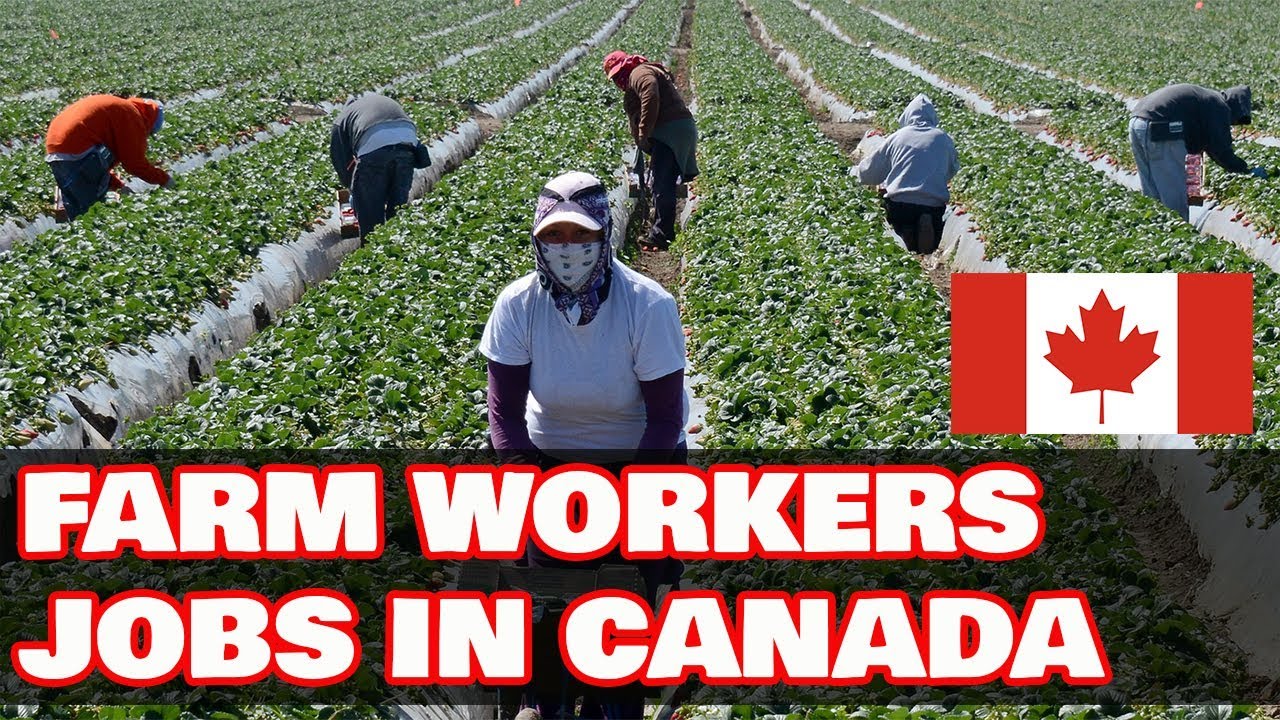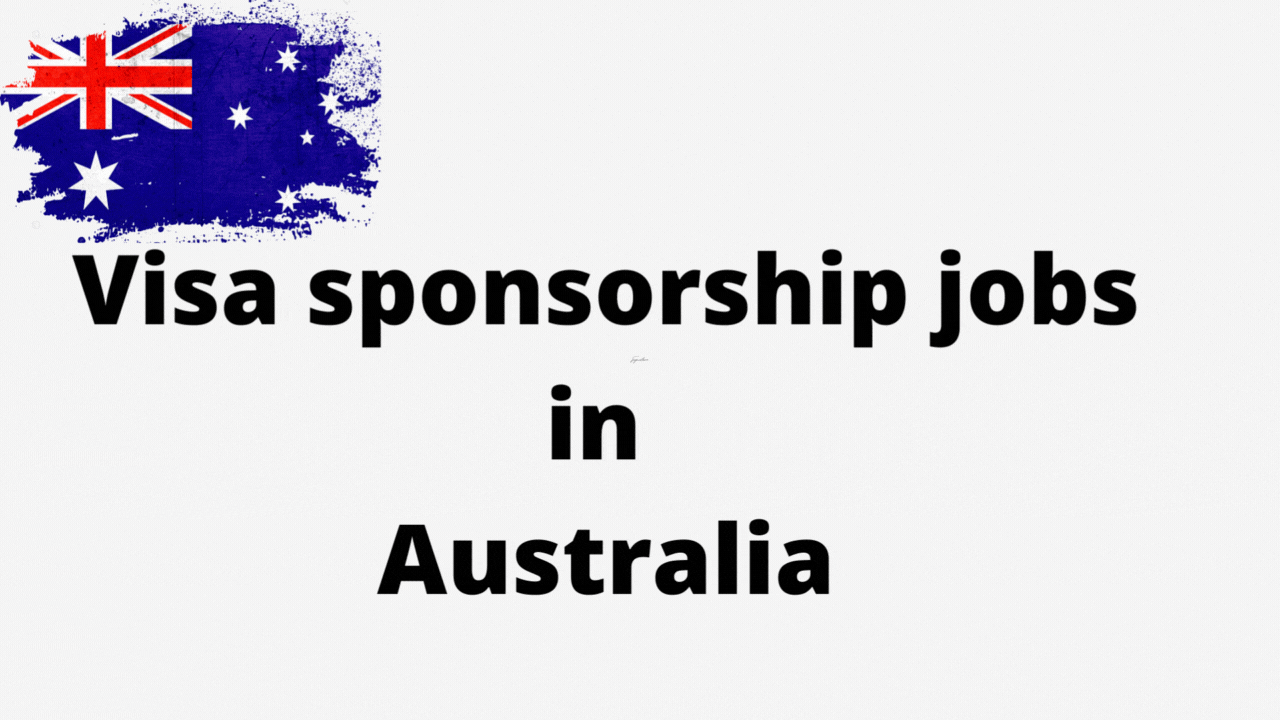Canada has long been a beacon for skilled professionals worldwide, offering a high standard of living, diverse culture, and a robust economy. For many international job seekers, securing a visa sponsorship job in Canada is the golden ticket to a brighter future. This article delves into everything you need to know about visa sponsorship jobs in Canada, from understanding the process to finding the right opportunities and maximizing your chances of success.
What Are Visa Sponsorship Jobs?
Visa sponsorship jobs are positions where employers are willing to sponsor foreign workers for a work visa. This means the employer takes on the responsibility of ensuring that the employee has the legal right to work in Canada. For international job seekers, this is a crucial step, as it allows them to work legally in the country and potentially transition to permanent residency.
Why Canada?
Canada is known for its welcoming immigration policies and a strong demand for skilled workers. The country’s aging population and low birth rate have created a significant labor shortage in various sectors, making it an attractive destination for foreign talent. Additionally, Canada’s high quality of life, excellent healthcare system, and diverse communities make it a desirable place to live and work.
Understanding the Canadian Work Visa Process
Before diving into the job search, it’s essential to understand the Canadian work visa process. There are several types of work visas, each catering to different categories of workers:
1. Temporary Foreign Worker Program (TFWP)
The TFWP allows Canadian employers to hire foreign workers to fill temporary labor shortages. Employers must obtain a Labor Market Impact Assessment (LMIA) to prove that hiring a foreign worker will not negatively impact the Canadian labor market.
2. International Mobility Program (IMP)
The IMP allows employers to hire foreign workers without an LMIA. This program is designed to advance Canada’s broad economic, social, and cultural interests. It includes categories like intra-company transfers, significant benefit workers, and international agreements like NAFTA.
3. Express Entry System
The Express Entry system is a points-based system used to manage applications for permanent residency. While it’s not a work visa per se, it’s a pathway for skilled workers to gain permanent residency and work in Canada. Candidates with a job offer from a Canadian employer can earn additional points, increasing their chances of being invited to apply for permanent residency.
4. Provincial Nominee Programs (PNPs)
PNPs allow Canadian provinces and territories to nominate individuals who wish to immigrate to Canada and settle in a specific province. Many PNPs have streams that cater to skilled workers, and a job offer from a provincial employer can significantly boost your chances of being nominated.
How to Find Visa Sponsorship Jobs in Canada
Finding a visa sponsorship job in Canada requires a strategic approach. Here are some steps to help you get started:
1. Research In-Demand Occupations
Canada has a list of in-demand occupations that are updated regularly. These occupations are in high demand due to labor shortages, and employers are more likely to sponsor foreign workers for these roles. Some of the top in-demand occupations include:
- Healthcare Professionals: Nurses, doctors, and medical technicians are in high demand across Canada.
- IT and Tech Professionals: Software developers, data scientists, and cybersecurity experts are sought after in the tech industry.
- Skilled Trades: Electricians, plumbers, and welders are needed in the construction and manufacturing sectors.
- Engineering: Civil, mechanical, and electrical engineers are in demand in various industries.
For a detailed list of in-demand occupations, check out our In-Demand Jobs in Canada and How To Apply
2. Use Job Search Platforms
Several job search platforms cater specifically to international job seekers looking for visa sponsorship jobs in Canada. Some popular platforms include:
- Indeed Canada: A comprehensive job search engine that allows you to filter jobs by visa sponsorship.
- LinkedIn: A professional networking platform where you can connect with Canadian employers and recruiters.
- Workopolis: A Canadian job board that lists job opportunities across various industries.
- Job Bank: The Canadian government’s official job board, which lists job opportunities and provides information on labor market trends.
For more tips on using job search platforms effectively, read our article on Top Job Search Platforms for International Job Seekers.
3. Network with Canadian Employers
Networking is a powerful tool in the job search process. Attend job fairs, industry conferences, and networking events to connect with Canadian employers. Join professional associations and online forums related to your field to expand your network.
4. Tailor Your Resume and Cover Letter
Canadian employers have specific expectations when it comes to resumes and cover letters. Ensure your resume is tailored to the Canadian job market, highlighting your skills, experience, and qualifications. Your cover letter should be customized for each job application, explaining why you’re a good fit for the role and how you can contribute to the company.
For more advice on crafting a Canadian-style resume, visit our Guide to Writing a Canadian Resume.
5. Prepare for Interviews
If you’re invited for an interview, it’s essential to prepare thoroughly. Research the company, understand the job requirements, and practice common interview questions. Be ready to discuss your work experience, skills, and why you’re interested in working in Canada.
For a comprehensive guide on acing job interviews, check out our Interview Preparation Tips for International Job Seekers.
Top Industries Offering Visa Sponsorship Jobs in Canada
Certain industries in Canada are more likely to offer visa sponsorship jobs due to labor shortages and high demand for skilled workers. Here are some of the top industries to consider:
1. Healthcare
The healthcare sector in Canada is experiencing a significant labor shortage, particularly in rural and remote areas. Nurses, doctors, and other healthcare professionals are in high demand, and many employers are willing to sponsor foreign workers.
For more information on healthcare jobs in Canada, read our Guide to Healthcare Jobs in Canada and How to Apply
2. Information Technology
Canada’s tech industry is booming, with cities like Toronto, Vancouver, and Montreal becoming tech hubs. Software developers, data scientists, and IT professionals are in high demand, and many tech companies are open to sponsoring foreign workers.
Learn more about the tech industry in Canada by visiting our Tech Jobs in Canada and how to Apply
3. Engineering
Canada’s infrastructure projects and growing industries require skilled engineers. Civil, mechanical, and electrical engineers are in demand, and many engineering firms are willing to sponsor foreign workers.
For a detailed look at engineering opportunities, check out our Engineering Jobs in Canada and how to Apply
4. Skilled Trades
The construction and manufacturing sectors in Canada are facing a shortage of skilled tradespeople. Electricians, plumbers, welders, and carpenters are in high demand, and many employers are willing to sponsor foreign workers.
For more information on skilled trades in Canada, visit our List of Skilled Jobs in Canada and how to Apply
5. Agriculture
Canada’s agriculture sector relies heavily on foreign workers, particularly for seasonal work. Farm workers, agricultural technicians, and food processing workers are in demand, and many employers offer visa sponsorship.
For insights into agricultural jobs, read our Agriculture Jobs in Canda and How to Apply
Tips for Securing a Visa Sponsorship Job in Canada
Securing a visa sponsorship job in Canada can be challenging, but with the right approach, you can increase your chances of success. Here are some tips to help you:
1. Obtain the Necessary Credentials
Ensure that your qualifications and certifications are recognized in Canada. Some professions require additional licensing or certification to practice in Canada, so it’s essential to research the requirements for your field.
For more information on credential recognition, visit our Guide to Credential Recognition in Canada.
2. Improve Your Language Skills
Proficiency in English or French is crucial for working in Canada. If English or French is not your first language, consider taking language courses to improve your skills. Many employers require proof of language proficiency, such as IELTS or CELPIP scores for English or TEF scores for French.
For tips on improving your language skills, check out our Language Skills Improvement Guide.
3. Be Flexible with Location
While major cities like Toronto, Vancouver, and Montreal offer numerous job opportunities, smaller cities and rural areas may have more demand for foreign workers. Being open to relocating to different parts of Canada can increase your chances of finding a visa sponsorship job.
For insights into living and working in smaller Canadian cities, read our Guide to Living in Small Canadian Cities.
4. Stay Informed About Immigration Policies
Canada’s immigration policies are subject to change, so it’s essential to stay informed about the latest updates. Follow official government websites and reputable immigration news sources to stay up-to-date on policy changes that may affect your job search.
For the latest updates on Canadian immigration policies, visit our Canadian Immigration Policy Updates.
5. Seek Professional Advice
Navigating the Canadian job market and immigration process can be complex. Consider seeking advice from immigration consultants or career coaches who specialize in helping international job seekers. They can provide valuable insights and guidance to help you achieve your goals.
For more information on finding professional advice, check out our Guide to Finding Immigration Consultants.
The Role of Recruitment Agencies in Securing Visa Sponsorship Jobs
Recruitment agencies can play a significant role in helping international job seekers find visa sponsorship jobs in Canada. These agencies have established relationships with Canadian employers and can match candidates with suitable job opportunities. Here are some benefits of using recruitment agencies:
1. Access to Exclusive Job Opportunities
Recruitment agencies often have access to job openings that are not advertised publicly. This gives job seekers a competitive edge in finding visa sponsorship jobs.
2. Expert Guidance
Recruitment agencies provide expert guidance on the Canadian job market, including resume writing, interview preparation, and visa application processes.
3. Streamlined Job Search
By working with a recruitment agency, job seekers can streamline their job search process, saving time and effort.
For more information on how recruitment agencies can assist you, read our Guide to Working with Recruitment Agencies.
Understanding the LMIA Process
The Labor Market Impact Assessment (LMIA) is a crucial step in the visa sponsorship process. Employers must obtain an LMIA to hire foreign workers, proving that there is a need for a foreign worker and that no Canadian worker is available to fill the position. Here’s what you need to know about the LMIA process:
1. Employer Responsibilities
Employers must demonstrate that hiring a foreign worker will not negatively impact the Canadian labor market. This includes advertising the job position to Canadian citizens and permanent residents before offering it to a foreign worker.
2. Job Offer Requirements
The job offer must meet specific requirements, including competitive wages, working conditions, and benefits that are consistent with Canadian labor standards.
3. Processing Time
The LMIA process can take several weeks to months, depending on the complexity of the application and the specific requirements of the job position.
For a detailed guide on the LMIA process, visit our Understanding the LMIA Process.
Transitioning from Temporary to Permanent Residency
Many international workers who secure visa sponsorship jobs in Canada aim to transition to permanent residency. Here are some pathways to consider:
1. Express Entry System
The Express Entry system is a points-based system that manages applications for permanent residency. Candidates with a job offer from a Canadian employer can earn additional points, increasing their chances of being invited to apply for permanent residency.
2. Provincial Nominee Programs (PNPs)
PNPs allow Canadian provinces and territories to nominate individuals who wish to immigrate to Canada and settle in a specific province. Many PNPs have streams that cater to skilled workers, and a job offer from a provincial employer can significantly boost your chances of being nominated.
3. Canadian Experience Class (CEC)
The Canadian Experience Class is a pathway to permanent residency for individuals who have gained skilled work experience in Canada. This program is particularly beneficial for those who have worked in Canada on a temporary work visa.
For more information on transitioning to permanent residency, read our Guide to Permanent Residency in Canada.
Conclusion
Securing a visa sponsorship job in Canada is a dream for many international job seekers. With its strong economy, welcoming immigration policies, and high demand for skilled workers, Canada offers numerous opportunities for those willing to put in the effort. By understanding the visa process, researching in-demand occupations, and strategically approaching your job search, you can increase your chances of finding a visa sponsorship job in Canada.
For more information on Canadian visas, job opportunities, and immigration tips, visit VisaXtra. Our comprehensive resources and expert advice can help you navigate the complexities of the Canadian job market and immigration process.










